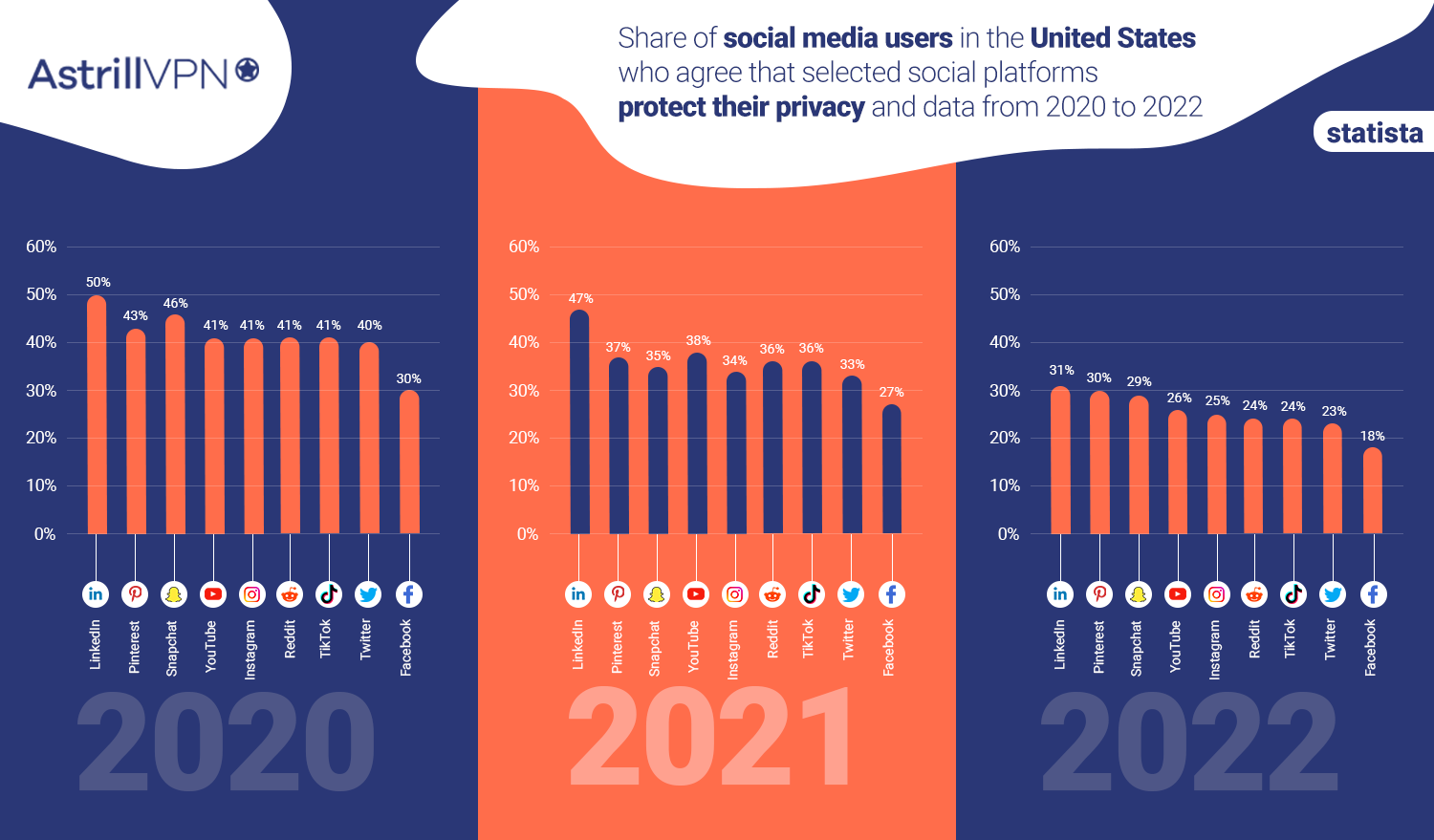Decline in US Social Media Users’ Trust from 2020 to 2022

Arsalan Rathore

In recent years, issues relating to individuals’ right to privacy have become a focal point of increased public and governmental attention. After the Cambridge Analytica incident of 2018, the internet and social media have gained new significance.
The digital billboards of the modern internet user are social networking sites like Twitter, Tumblr, Facebook, Pinterest, Instagram, Linked In, and Snapchat. Social media users attract viewers from beyond their immediate social circle due to the volume of information they give, most of which is highly personal. Everything you do on social media is being recorded for reasons you don’t know about.
Maintaining privacy on social networking platforms is only possible. This is because your friends and family will still disclose your personal information even if you take every precaution to preserve your privacy on social media, including deleting your account. Even if you delete your social networking apps, it mayn’t help.
Since there is clearly no guarantee of privacy on social media, it is essential to take precautions to safeguard your personal information before posting anything online.
When users believe that the service will keep their data private and provide a secure space to share and consume content, we call this “digital trust.” Insider Intelligence’s sixth annual benchmark poll of US social media users shows that trust in social media platforms has dropped significantly this year in key categories, including privacy, safety, and ad relevance.

As of 2022, 31% of American social media users trusted LinkedIn to keep their information secure and private. In spite of the fact that LinkedIn has the highest level of trust among the chosen online networks, trust in regard to privacy and data submitted to the site has declined from 50% in 2020.
Facebook was ranked as the least trusted social media platform, with only 18% of users saying they were comfortable sharing personal information with the platform. There has been a steady decline over the past several years in users’ belief in major social network’s ability to keep their data and privacy safe.
There is a heightened focus on how social media companies acquire personal information and make it available to advertisers in the wake of Cambridge Analytica’s exploitation of Facebook data.
Various social media networks’ business models revolve around collecting user data. Since this is the case, social network mergers and acquisitions present serious threats to users’ privacy. Despite this, in recent years, platforms that said they would safeguard users’ privacy have repeatedly been acquired by firms that violated those promises.
There is an immediate need for social media platforms to take measures to restore users’ faith in them. Building trust is one strategy for retaining users on sites like Facebook and Twitter, where new signups have slowed or even declined.
However, even platforms like TikTok, which are experiencing a period of rapid user growth, shouldn’t rest on their past successes: it’s much easier to earn users’ trust in the first place than to gain back their loyalty. Trust is an important factor that can set a social media site apart from others that offer advertising in today’s competitive market.


No comments were posted yet